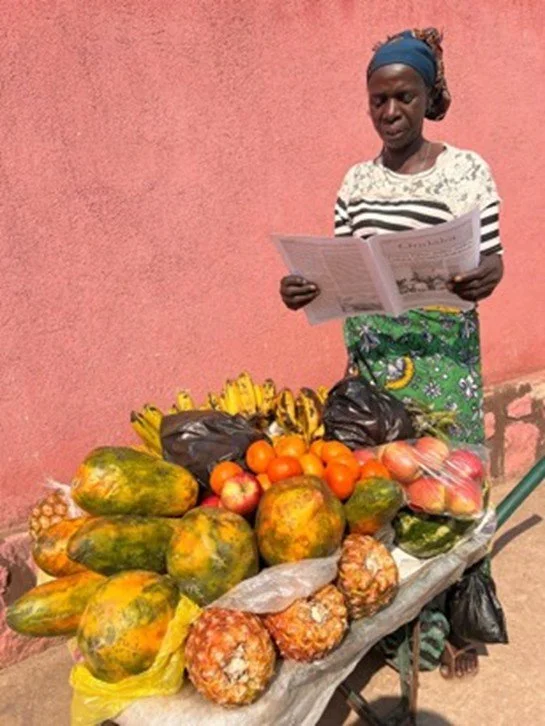Rooftops Canada’s Partners in Action
In Urban October, we recognize the efforts of Rooftops Canada’s partners. They are helping communities grow in fair, strong, and sustainable ways.
Uganda: Strengthening Land Rights for Urban Resilience
Over the past few months, Rooftops Canada’s partner Shelter and Settlements Alternatives (SSA) has strengthened land rights and access to justice across communities. This is being done through training paralegals, participating in radio talk shows, engaging in community dialogues during Uganda’s Land Awareness Week (August 2025), distributing animated posters on land rights, hosting legal aid clinics, and producing videos shared widely on social media.
Following a refresher training, Victoria Nakitende, a community paralegal from Mityana, reflected on her learning and the changes she now plans to make in her day-to-day work.
“What I’ve noted most in this refresher training is, first, ownership of land—that it is not good to delay making agreements. It is better for it to be done there and then. I’ve also learned about conflicts: conflicts are sometimes good, bringing new developments into society. And I’ve also learned that we, as paralegals, mediate, and after mediating, we don’t judge. It is all about mediation, negotiation, and reconciliation.”
This work is helping communities understand, claim, and protect their land and housing rights, essential for ensuring that everyone has a secure place to live in peace in dignity.
Lilian Kanana with her new garden.
South Africa: Women Claiming Their Right to the City
Cities cannot be sustainable without gender justice. In Johannesburg, the Socio-Economic Rights Institute (SERI) took part in National Women’s Month by hosting workshops for women on their right to land, housing and property, for example in marriage and inheritance matters.
By using Community Advice Guides, SERI is providing the information needed to help women navigate complex legal frameworks and protect themselves from eviction or displacement from their homes.
This work is ensuring women’s voices are heard and their rights respected, paving the way for more livable cities where equality and justice are a reality for all.
Kenya: Growing Food Systems in Nairobi’s Urban Landscape
In Nairobi, Mazingira Institute is showing how cities can feed themselves. By training urban farmers, supporting youth and women’s groups, and running market days, Mazingira’s work is strengthening local urban agriculture and food systems.
Training Sessions: Over the past three months, 76 farmers (35 women and 41 men) were trained on gender, urban agriculture, and food systems.
Annual Urban Farmers Assembly: In August, an annual meeting of urban farmers brought together 132 participants (69 women and 63 men) to exchange experiences and local small-space farming practices.
Montreal Study Visit: A group of urban agriculture specialists from Montreal spent two weeks in Nairobi learning and sharing with local urban farmers, highlighting the power of international collaboration.
Urban Agriculture Demonstration Unit: In August, a market day was held at a local community college, where urban farmers demonstrated their innovative small-space farming practices and sold a variety of vegetables, herbs, and eggs.
Youth and Women’s Group: Regular monthly meetings offered opportunities for group members to share successes, challenges and resources with each other.
Lilian Kanana, inspired by lessons on tire gardens and innovative rabbitry, now has the know-how and resources needed to start her own business. Her learning from Mazingira’s training is being put into practice in real and sustainable ways.
Angola: Women’s Co-operatives Building Community Resilience
Women co-operative leaders came together to exchange experiences and initiatives to strengthen co-operative living. Through these discussions they are:
Building their leadership skills
Better protecting their rights to land and housing using knowledge gained from training on land laws
sharing agricultural techniques, to strengthen their food security and incomes
Ondaka, a community newspaper published by Rooftops Canada’s partner, Development Workshop, continues to be an important source of information on women’s land and housing rights for local communities.
When women lead, everyone benefits.





